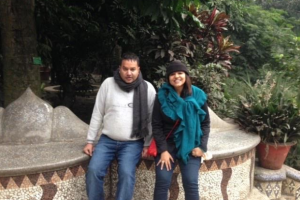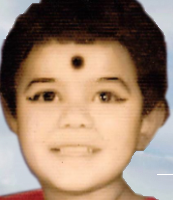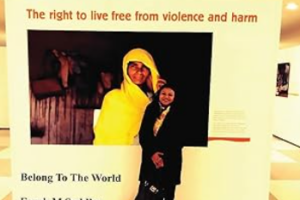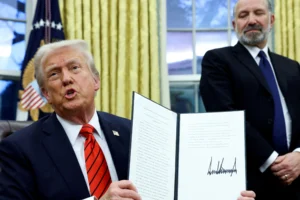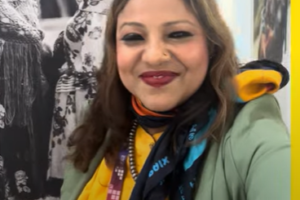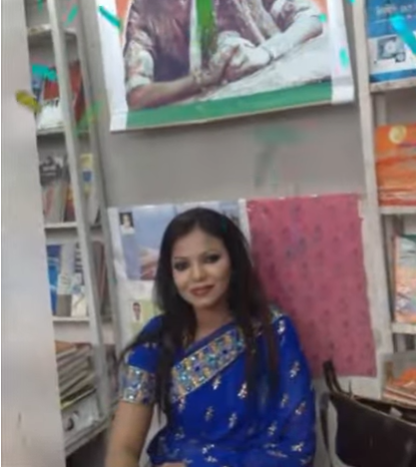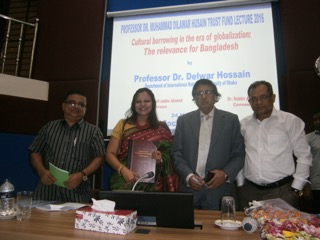Students have flooded social media to organise donations for Chinese doctors battling the coronavirus epidemic. Workers have marched in the streets to demand compensation for weeks of unemployment during citywide lockdowns. Young citizen journalists have taken to YouTube to call for free speech.
The coronavirus outbreak has mobilised young people in China, sounding a call to action for a generation that had shown little resistance to the ruling Communist Party’s agenda.
For much of their lives, many young Chinese have been content to relinquish political freedoms as long as the party upheld its end of an unspoken authoritarian bargain by providing jobs, stability and upward mobility. Now the virus has exposed the limits of that trade-off.
Angry and agitated, many young Chinese are pushing back on the government’s efforts to conceal its missteps and its resistance to allowing civil society to help.
Some have spoken out about the cost of secrecy, taking aim at censorship and the muzzling of whistleblowers. Others, by organizing volunteers and protests, have tested the party’s hostility to independent groups. Still others have sought to hold opaque state-backed charities to account by exposing how public donations were funnelled first to government offices instead of hospitals.
The outbreak has prompted a generational awakening that could match the defining effects of World War II or the 2008 financial crisis and disrupt the social stability on which the Communist Party depends.
“These recent events have made some people see more clearly that criticising their country does not mean they don’t love their country,” said Hannah Yang, 34, a Beijing resident who created a channel on Telegram, an encrypted messaging app, to share screenshots of censored articles and social media posts. More than 14,000 people have joined.
“One day, there will definitely be a narrative about the recent events in China,” she said. “And at the very least, we can let other people know exactly what happened here.”
As the virus continues to spread globally, similar questions — about trust in government, economic security, a way of life — are sure to face young people in many countries.
But they have special resonance in China for a generation that is largely unfamiliar with the poverty and turmoil that came to characterize the country in the decades after the Communist Revolution.
Unlike the college students whose pro-democracy protests prompted the government’s Tiananmen Square crackdown in 1989, this generation — brought up in a roaring economy, saturated with official propaganda — has shown little opposition to the status quo.
The coming months will test whether the party can assuage young people’s newfound concerns or if the pressure will build into broader discontent that chips away at the government’s legitimacy.
China’s recent success in reducing coronavirus infections has helped renew nationalist fervour, despite the severe lockdowns and travel restrictions put in place by the government. If the party is able to restart the economy quickly and restore daily life while countries like Italy and the United States struggle to do so, its promotion of a strong, centralised state could gain even more traction.
But if the pandemic sets off a global recession that saps demand for Chinese goods and ends decades of economic growth in the country, resentment toward the party could build. Already, many young people are concerned about their job prospects as the fallout from the government’s containment efforts threatens to cause the first contraction in China’s economy since 1976.
“This episode has been traumatic and disruptive to many young people and led them to reflect on their experience and future prospects,” said Xueguang Zhou, a sociologist at Stanford University who has written about the Chinese government.
China’s leader, Xi Jinping, has vowed to protect workers and get factories back on track. His government is ramping up nationalistic propaganda, portraying its handling of the virus as a model for other countries. And it is squelching dissent, targeting citizen journalists who sought to share unfiltered accounts of the crisis in Wuhan as well as critics like Ren Zhiqiang, an outspoken property tycoon who called Xi a power-hungry “clown.”
Still, the scars of the pandemic, which has killed more than 3,000 people in China, will not easily fade.
Carol Huang, 28, was once largely indifferent to politics, accepting that most people seemed supportive of the party and Xi.
But recently, Huang, who is from Wuhan, the central Chinese city where the outbreak began, has taken to battling supporters of the party on social media and defending Chinese journalists who have criticised the government’s response to the outbreak.
“The government thinks, ‘Either you listen to me, or you go to hell,’” she said. “There’s no neutral ground. This is what I’m trying to change on social media.”
Other Chinese internet users — nearly half of whom are under 30, according to official statistics — have chipped at the party’s narrative in less direct ways.
Some, like Yang in Beijing, have set up “cybergraveyards” to compile news and commentary related to the virus that have been scrubbed off the internet by government censors. At several universities, students organized mass campaigns on social media to solicit donations for hospitals in Wuhan, posting testimonials from doctors and nurses describing a lack of supplies.
Several tech-savvy volunteers analysed data from the Wuhan Red Cross and the Wuhan Charity General Association, two government-backed charities that controlled donations meant to help fight the outbreak. They found that the organisations had funnelled more money and masks to government offices than to hospitals, and they publicised the details on social media.
A volunteer in Beijing who parsed the Red Cross data said the project was born in part out of circumstance: Nationwide lockdowns forced people to stay home, glued to news and social media reports out of Wuhan, making the cries for help impossible to ignore.
“The people of Wuhan gave onlookers, including myself, a lot of courage,” said the volunteer, who normally works as a teacher and who requested anonymity out of fear of government retaliation.
Those who took breaks from their normal routines to volunteer said the epidemic brought them closer to their communities.
As the outbreak worsened in January and officials in Wuhan imposed a lockdown, Lin Wenhua, a freelance videographer in the city, pivoted from producing advertisements to using his camera to document the crisis.
Lin, 38, posted videos of his conversations with doctors and nurses who described not having time to rest, and with homeless workers displaced by the epidemic. He attracted a following of more than 5 million people on Weibo, one of China’s most popular social media sites, even as several of his videos were deleted by government censors.
“Human nature has been magnified in this crisis,” he said. “You see warm and kind characters, but you also see especially ugly ones.”
A few young people have channelled their experiences on the ground into explicitly political appeals.
Li Zehua, a former host on China Central Television, the state broadcast agency, travelled to Wuhan to cover the outbreak as a citizen journalist, interviewing stranded migrant workers and crematory workers. In his last video, Li, 25, urged his peers to learn more about China’s history.
“I’m not willing to disguise my voice, nor am I willing to shut my eyes and close my ears,” he said before two men in plainclothes entered his apartment and the video was cut off. “I hope more young people can stand up!”
Li has not been heard from since, nor has Chen Qiushi, another young citizen journalist in Wuhan.
Still, despite widespread criticism of authorities’ early mishandling of the virus, those calling for less censorship and centralised control still probably represent a minority in a country where strident patriotism is fostered at a young age.
Far wider reaching is the anxiety over the outbreak’s economic toll.
In recent weeks, some young people have joined protests to demand compensation for the disruption caused by the virus and the ensuing government lockdowns.
Peng Lun, 28, a clothing seller in the southern city of Guangzhou, joined hundreds of people recently as they marched in the streets demanding reductions in rent for shop owners. He said he and his wife were running out of money for food and shelter.
“Nobody is buying anything anymore,” he said. “How are we supposed to survive?”
Experts said China’s economy is likely to be the deciding factor in whether young people’s social and political engagement would last. While social media activity can be fleeting or censored, unemployment is harder to paper over, said Fengshu Liu, a professor at the University of Oslo who has studied Chinese youth.
“Unemployment, the effects on young people’s daily lives — if these issues are not solved in time, there might be some risks,” Liu said.
Economic concerns are what preoccupy Mei Qingyuan, a recent college graduate in the eastern city of Hangzhou. During the outbreak, he had to work from home because he was unable to return to an internship in Shanghai. His parents’ clothing factory suspended activity, with many migrant employees trapped elsewhere.
Still, he considered himself relatively unscathed. His parents’ factory has reopened. And though he grieved over the suffering in Wuhan, he has started to move on.
“On the one hand, that makes me sad,” he said. “But on the other hand, it’s unavoidable. Everyone has their own life.
“And, in China,” he added, “paying attention to politics is not necessarily a good thing.”





